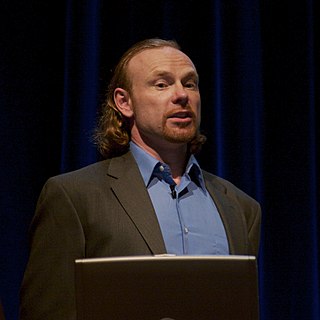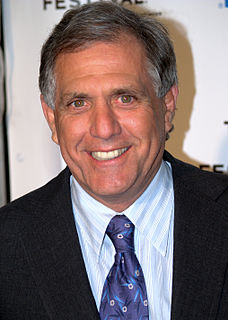A Quote by Ernest Cline
Whenever I watch 'The Matrix,' I think that it is possible, but I don't think that it's going to be machines enslaving humans.
Related Quotes
By the time of the Singularity, there won't be a distinction between humans and technology. This is not because humans will have become what we think of as machines today, but rather machines will have progressed to be like humans and beyond. Technology will be the metaphorical opposable thumb that enables our next step in evolution.
People's minds are polluted by these dark pictures of the future from Hollywood: "The Terminator," the Skynet, "The Matrix." It's world where there's no room for humans, or they have to fight against the machines. I think it's just a way, way, way, way in the future. Is it going to happen? I don't know. For me, these debates are not similar, but they resemble debates about how the sun will turn into a supernova in 4 to 5 billion years. Frankly, I don't care.
I think that the artificial-intelligence people are making a lot of noise recently, claiming that artificial intelligence is making huge progress and we're going to be outstripped by the machines. But, in my view, this whole field is based on a misconception. I think the brain is analog, whereas the machines are digital. They really are different. So I think that what the machines can do, of course, is wonderful, but it's not the same as what the brain can do.
It's hard for us to imagine, as humans, that we'll become less powerful. But it'll be healthier for the planet and for the eco-system if that does happen. If humans are going to merge with machines, then let's get on with it. I love humans, but I also love dinosaurs - I'm pretty sure I wouldn't have wanted them to die out, either.
I think Amy Poehler and Tina Fey have done so much for women in comedy in the sense that they've normalized it. You don't think, 'I'm going to watch that comedy starring a woman,' you think, 'I'm going to watch that funny show.' They refuse to play the foils for men, or be reduced to the butt of every joke, and I love that about both of them.
All experiments that are related to the games when you have humans versus machines in the games - whether it's chess or "Go" or any other game - machines will prevail not because they can solve the game. Chess is mathematically unsolvable. But at the end of the day, the machine doesn't have to solve the game. The machine has to win the game. And to win the game, it just has to make fewer mistakes than humans. Which is not that difficult since humans are humans and vulnerable, and we don't have the same steady hand as the computer.
you mean machines are like humans?" I shook my head. "No, not like humans. With machines the feeling is, well, more finite. It doesn't go any further. With humans it's different. The feeling is always changing. Like if you love somebody, the love is always shifting or wavering. It's always questioning or inflating or disappearing or denying or hurting. And the thing is, you can't do anything about it, you can't control it. With my Subaru, it's not so complicated.
I think sometime we will go to Mars and I think we'll explore it with humans sometime, but I think it's really wise to do all the robotic exploration ahead of time and learn as much as possible. Once we have learned as much as possible with the robots, then that's the time to send people, and let them then continue the research that the robots have started.
Although humans today remain more capable than machines for many tasks, by 2030 machine capabilities will have increased to the point that humans will have become the weakest component in a wide array of systems and processes. Humans and machines will need to become far more closely coupled, through improved human-machine interfaces and by direct augmentation of human performance





































